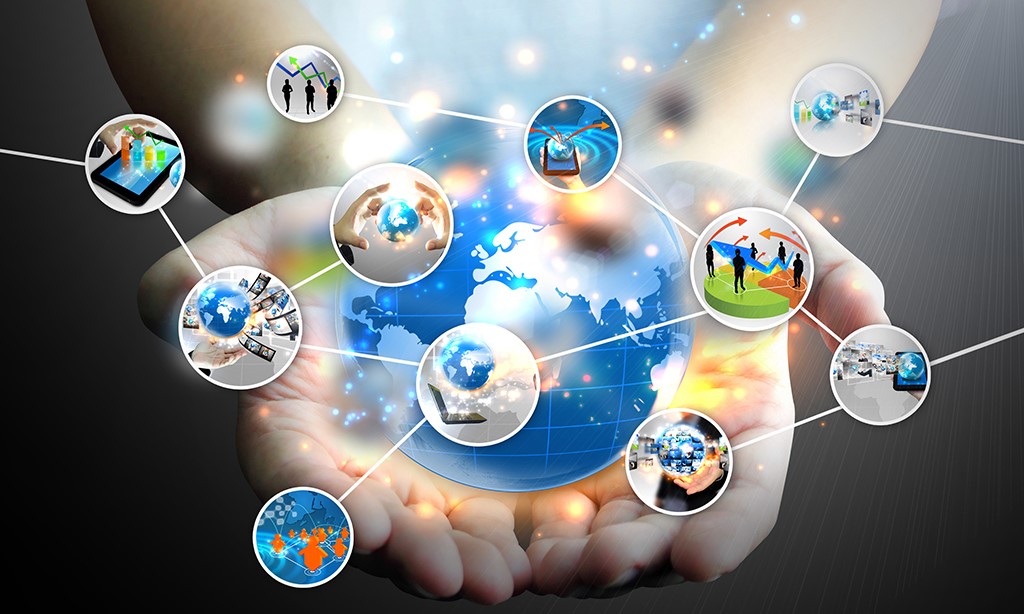
What is the Internet?
At its core, the Internet is a vast network of interconnected computers and servers that allows users around the world to communicate, share data, and access information. It works using standardized communication protocols (TCP/IP), which ensure that data is transmitted accurately and efficiently between devices.
The Internet includes:
-
Websites and online platforms
-
Email systems
-
Social media networks
-
Cloud storage and data exchange tools
-
Streaming services
-
IoT (Internet of Things) devices
A Brief History of the Internet
The Internet began as a military project in the 1960s, known as ARPANET, funded by the U.S. Department of Defense. Its initial goal was to create a resilient communication system in case of emergencies.
By the late 1980s and early 1990s, the development of hypertext (HTTP) and the World Wide Web (WWW) by Tim Berners-Lee revolutionized online access, making it easier for the general public to navigate and use the Internet.
Key milestones:
-
1991 – Launch of the World Wide Web
-
1995 – Internet commercialization begins
-
2000s – Rise of social media, online shopping, and mobile browsing
-
2020s – The Internet becomes essential for remote work, education, and global trade
How the Internet Facilitates Global Communication
The Internet eliminates geographical and temporal boundaries, enabling instant communication across the world. Some of the most common forms of online communication include:
1. Email and Messaging Apps
Tools like Gmail, Outlook, WhatsApp, and Telegram allow people to exchange messages, documents, and multimedia in seconds.
2. Video Conferencing
Services like Zoom, Microsoft Teams, and Google Meet have become essential for virtual meetings, especially after the rise of remote work and hybrid learning environments.
3. Social Media Platforms
Platforms like Facebook, Instagram, X (formerly Twitter), LinkedIn, and TikTok allow users to share updates, ideas, and trends in real time.
4. Online Forums and Communities
From Reddit to Stack Overflow, millions of users share knowledge and collaborate globally on topics ranging from coding to cooking.
The Internet as a Hub for Information Exchange
The Internet is the largest repository of information ever created. With just a few clicks or taps, users can access:
-
News outlets and digital journalism
-
Academic research and online courses
-
Government resources and services
-
E-commerce platforms and reviews
-
DIY tutorials and user-generated content
Key Benefits of Online Information Access:
-
Real-time updates on world events
-
24/7 availability of data
-
Multilingual resources for global inclusivity
-
Crowdsourced knowledge, e.g., Wikipedia and Quora
The Role of the Internet in Business and Economy
The digital economy depends heavily on Internet infrastructure. Businesses leverage online tools for:
-
E-commerce and digital payments
-
Global supply chain management
-
Remote workforce collaboration
-
Data-driven decision-making through analytics
-
Online marketing and SEO
Without the Internet, today’s global economy would be unimaginable.
Challenges in the Age of Internet Communication
Despite its immense benefits, the Internet poses several challenges:
1. Digital Divide
Not everyone has equal access. Rural and underdeveloped regions often lack high-speed connectivity.
2. Cybersecurity Threats
Hacking, phishing, and data breaches have increased as more activities go digital.
3. Misinformation
Fake news and unverified content can spread rapidly, influencing public opinion and behavior.
4. Privacy Concerns
User data is often collected, stored, and used for marketing — sometimes without clear consent.
The Future of the Internet
Emerging technologies are shaping the next phase of Internet communication:
-
5G and satellite Internet (e.g., Starlink) for faster and broader access
-
AI-powered search and chatbots for smarter information retrieval
-
Blockchain and decentralized platforms to improve privacy and security
-
Virtual Reality (VR) and Augmented Reality (AR) to enhance interactive experiences
-
The Metaverse — a more immersive online environment for social and professional use
As we move forward, the Internet will become even more deeply woven into the fabric of our daily lives.
Final Thoughts
The Internet has transformed the way we communicate, collaborate, and consume information. What started as a military experiment has become the lifeline of modern civilization — connecting billions of people, empowering education, enhancing business, and creating a truly global village.
Yet, as we continue to rely more heavily on this technology, it's crucial to address its challenges responsibly and ensure that the benefits of Internet access are shared equally across the world.

You must be logged in to post a comment.